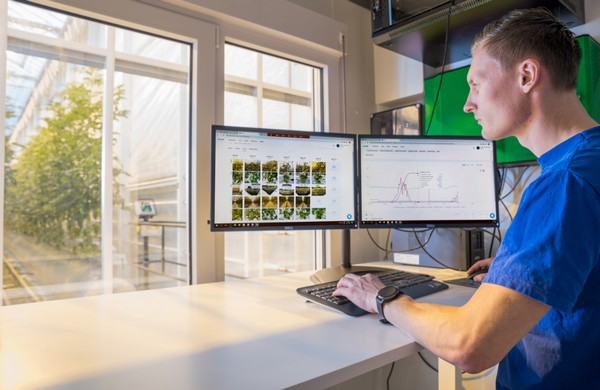Since its introduction at Greentech 2019, the software platform PYLOT is now being used at almost 500 hectares of greenhouses. This milestone coincides with the commercial launch of PYLOT Professional 2.0. "During that time we have certainly fulfilled the promise of becoming a worthy product," business manager Marc Rooijakkers explains. In the near future the platform will integrate with several suppliers, and the simulation of plant models will become a reality.
Constructor and manager of greenhouse projects, KUBO, released a first version of the management system last year. PYLOT needs to pool, analyse, and provide insight into the rapidly growing flow of data in horticultural greenhouses in a user-friendly way. In one and a half years, new functions have been added: Climate Insights (incident management), Benchmarking, Crop Cycles (crop planning) and Resources (use of gas, water and electricity). The program is intended for the five main vegetable crops in the horticultural greenhouse sector: tomatoes, peppers, cucumbers, aubergines, and lettuce. PYLOT can gather data from the five most important international climate computers.

Rapid growth
Currently, the platform is in use in 134 greenhouses spread over 11 countries. The total acreage of PYLOT now covers almost 500 hectares. The growth is fast: PYLOT connected the 100th greenhouse only one month ago, Wholesum Farms, with branches in the United States and Mexico. Noticeable is the large spread in user profiles: the largest grower owns 240 hectares, the smallest 0.6.
Independent platform
In the near future, PYLOT will continue to grow as an independent platform that is open to several suppliers, Marc Rooijakkers says. "We see movement in the market. Parties need to collaborate more and more. Customers are asking, for example, for additional sensors focussed on sap flow, plant weight and irrigation. An entrepreneur is not waiting for a separate software program if it can be delivered with PYLOT."
Simulating crops
Behind the scenes, a new revolutionary expansion is waiting to be launched. Marc Rooijakkers: "The next step is the digitisation of a WUR plant model. This functionality makes it possible to simulate a complete crop cycle. You choose your crop and variety and then you can see the effect of a change in temperature, CO2, light and plant density. What will happen to the harvest if I adjust the temperature one degree higher? In theory, this is how you will be able to obtain the highest yield. We are in the final phase of the development in which we invest a lot of time in validating and calculating with operational data and fine-tuning with our customers."
More cooperation
The PYLOT team has grown to a workforce of 15 people in one and a half years. In addition, the team works closely together with knowledge institutes and partners. The development of new functionalities goes hand in hand with users, not only growers but also investors, crop advisers and operational specialists in the horticultural sector. "We will be focussing more on forms of collaboration with market parties and on integration solutions with specialists in the market. Joining forces and merging the collected data to meet the customers' need for data. That is of value for growers, managers, owners, and investors. We will also continue to commit ourselves to the user-friendliness of the platform."
For more information: 
Pylot
[email protected]
www.pylot.nl
